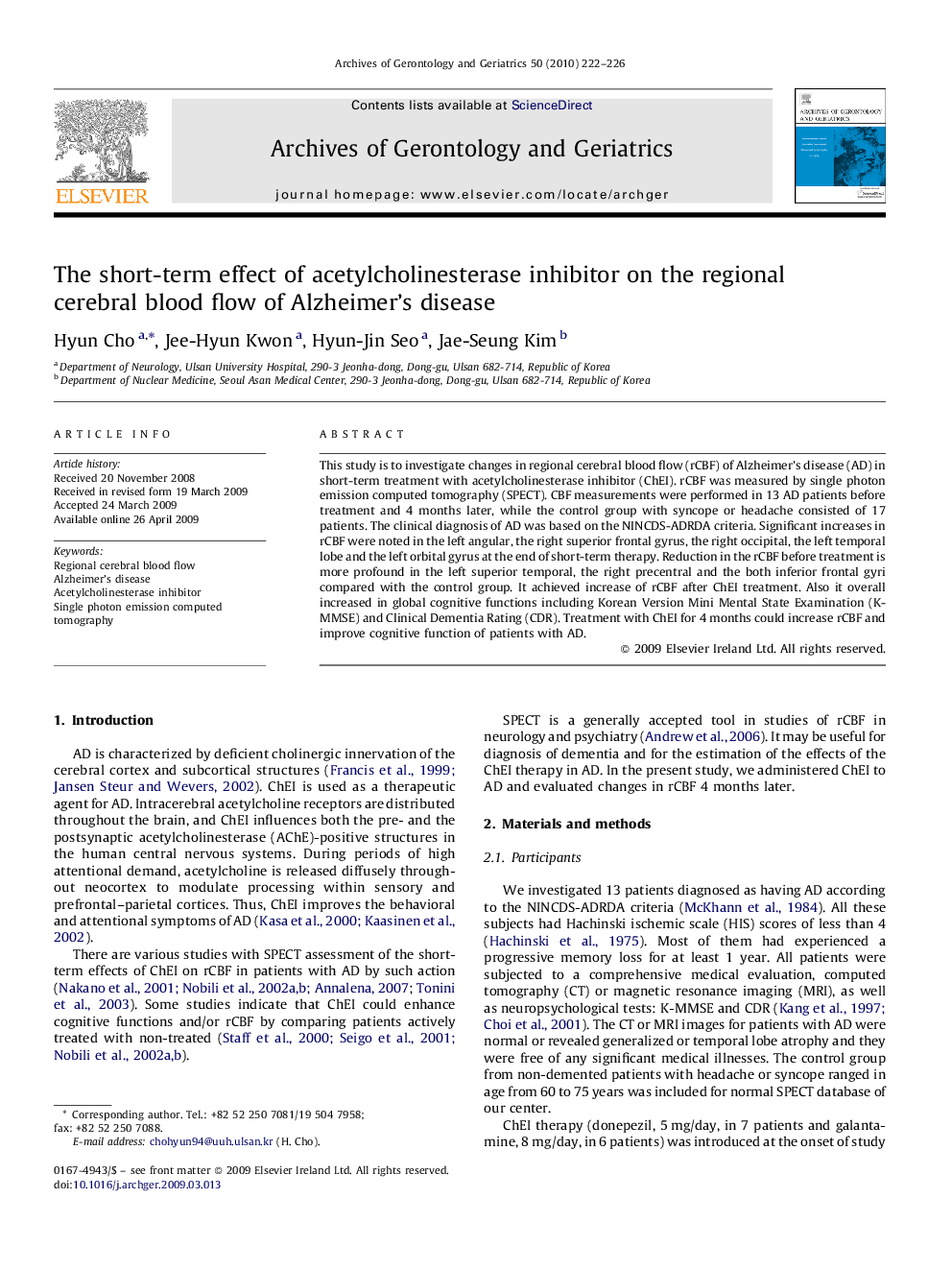| Article ID | Journal | Published Year | Pages | File Type |
|---|---|---|---|---|
| 1903762 | Archives of Gerontology and Geriatrics | 2010 | 5 Pages |
This study is to investigate changes in regional cerebral blood flow (rCBF) of Alzheimer's disease (AD) in short-term treatment with acetylcholinesterase inhibitor (ChEI). rCBF was measured by single photon emission computed tomography (SPECT). CBF measurements were performed in 13 AD patients before treatment and 4 months later, while the control group with syncope or headache consisted of 17 patients. The clinical diagnosis of AD was based on the NINCDS-ADRDA criteria. Significant increases in rCBF were noted in the left angular, the right superior frontal gyrus, the right occipital, the left temporal lobe and the left orbital gyrus at the end of short-term therapy. Reduction in the rCBF before treatment is more profound in the left superior temporal, the right precentral and the both inferior frontal gyri compared with the control group. It achieved increase of rCBF after ChEI treatment. Also it overall increased in global cognitive functions including Korean Version Mini Mental State Examination (K-MMSE) and Clinical Dementia Rating (CDR). Treatment with ChEI for 4 months could increase rCBF and improve cognitive function of patients with AD.
